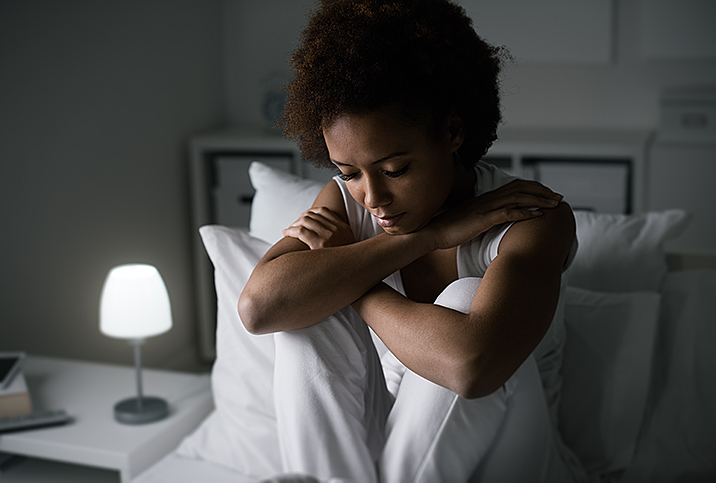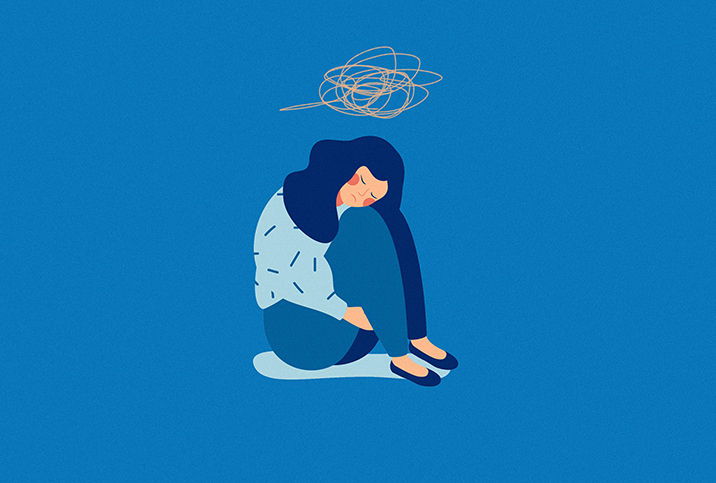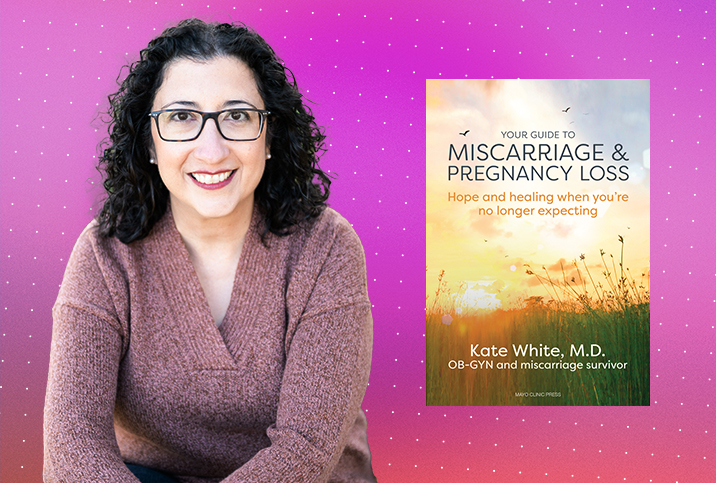The Crucial Aspects of Recovery and Aftercare Following a Miscarriage

A miscarriage is defined as a spontaneous pregnancy loss before 20 weeks of gestation.
Most miscarriages occur in the first trimester—before 12 weeks—and it is estimated that 10 percent to 26 percent of pregnancies end unexpectedly before 20 weeks. The numbers show that no one who loses a pregnancy is alone; unfortunately, this fact likely won't make the recovery process any easier.
After a miscarriage, some of the physical and emotional changes can seem overwhelming. It is essential you take time for yourself and go at your own pace, always adhering to your OB-GYN's instructions for aftercare following a miscarriage to ensure your recovery.
Body recovery and aftercare following a miscarriage
"The physical recovery after a miscarriage varies for each woman and is significantly based on the gestational age of the pregnancy loss," said Monte Swarup, M.D., a board-certified OB-GYN in Arizona and founder of HPD Rx.
Even if you feel fine physically, you should take care of your health in the following weeks. Your body is still recovering and will take four to six weeks to heal. The time depends on the stage of the pregnancy and other factors, such as complications during the miscarriage.
Symptoms during recovery from a miscarriage
"Bleeding and cramping are to be expected but usually tolerable with just nonsteroidal anti-inflammatory medications [NSAIDs]," Swarup said.
Bleeding and other discomfort can last up to two weeks, although after a few days, the bleeding should no longer be heavy. Vaginal bleeding can often have clots, but when they are very large, you need to talk to your doctor to help you take action.
Meanwhile, cramps vary from patient to patient. They may be the same intensity as during your menstrual cycle or stronger, but they usually pass in short order.
Severe cramps that don't stop may indicate something is wrong, so be sure to visit your doctor or the emergency room.
Treatments you may need
It is possible to wait until the pregnancy tissue comes out naturally following a miscarriage. In early pregnancies, this may occur with the first bleeding. Often, though, if the loss is after eight weeks, it's not feasible to wait and comes with additional risks.
This path is not advisable for everyone and should be discussed with your doctor, who may advise a medical or surgical approach. Each approach has risks and benefits.
Sometimes your doctor needs to intervene when some tissue remains in the uterus after an incomplete miscarriage. The uterus must be completely clean to avoid further problems.
"There may be some pregnancy tissue that is left in the uterus, and there are different options to remove it if it doesn’t pass naturally," Swarup explained. "Your OB-GYN may recommend a blood test or an ultrasound exam that confirms all the pregnancy tissue has passed."
Symptoms such as cramping and bleeding usually resolve promptly, but your doctor can give you some recommendations for the first few days after a miscarriage.
"Treatment for cramps and other symptoms include NSAIDs and/or heat. Narcotic pain meds are not usually needed," Swarup said.
Warning signs
Some symptoms are an indication you should contact your doctor right away. They include:
- Heavy bleeding
- Severe pain
- Fever
- Chills
The cramps should not be very strong, nor should the blood become abundant over the following days—these symptoms could indicate a complication. In addition, a foul-smelling vaginal discharge may indicate an infection.
Physical care
Aside from pelvic rest—no sex, no tampons—you can undertake physical activities such as working out. Be mindful, though, if you feel weak or dizzy, and cease that activity. Until the bleeding stops, you should take certain precautions to avoid infection.
"After a miscarriage, you need to pay close attention to your body as it relates to physical activities," Swarup explained. "Definitely nothing vaginally for two weeks, but beyond that, ease into your activities."
Caring for your body after a miscarriage includes taking the following actions:
- Don't spend time in pools, lakes, ponds and tubs.
- Rest. Sleep can help, especially during the first few hours.
- Avoid tampons for bleeding. It is recommended that you use sanitary pads.
- Sexual intercourse should be postponed for at least two weeks.
- Follow your doctor's instructions if they have prescribed any medication.
- Watch your diet.
- Drink plenty of water.
- Maintain good personal hygiene.
- Receiving help at home is a good idea if you feel weak or dizzy.
Watch your nutrition
After blood loss, it is common for a person's iron levels to drop and potentially cause anemia. A healthy diet rich in iron and vitamin C can help in the recovery process.
Although you may not feel very hungry, nourishing your body is essential for healing. In these cases, you can try simpler dishes such as smoothies, juices and soups.
Some important foods to add to your diet include the following:
- Green, leafy vegetables
- Beans
- Citrus fruits
- Seafood
- Tomatoes
- Pumpkin seeds
- Dark chocolate
Your emotional health is important
Whether it was a planned pregnancy or a surprise for you, having a miscarriage can bring on a lot of grief-driven emotions. The emotional impact goes beyond physical recovery.
Take your time. Just because your body has healed doesn't mean you should silence your emotions.
"Women experience a range of responses following miscarriage, from shame and isolation to a more healthy mourning process with a strong support network," said Jennifer Reid, M.D., a psychiatrist and writer in Philadelphia who also hosts "The Reflective Doc" podcast.
Emotional recovery after a miscarriage
Talking to others may be the key to your mental health during this challenging time. Try not to isolate yourself; instead, share your feelings.
"I usually encourage women to connect with a trusted friend, family member or even therapist if they are struggling," Reid said.
A miscarriage can be challenging and painful. You need to be attentive to your mental and emotional health. It is common to have ups and downs and mixed feelings, but if you feel overwhelmed, do not hesitate to consult your family doctor, gynecologist or midwife—or go directly to a mental health specialist.
"Occasionally, more severe symptoms warrant treatment by a psychiatrist," Reid said.
Having professional support on your side can benefit you. You have nothing to be ashamed of and no need to feel guilty if you ask for help. Here are some steps you can take:
- Reach out to a support group. Although you may feel alone right now, many women have gone through similar situations. Receiving support in these group settings can be a great help.
- Take care of your body. To improve your emotional health, you need to take care of your physical health. Listen to your healthcare provider and follow instructions. Eat healthy and, as soon as you can, do moderate exercise, even if it's as simple as walking.
- Work through your loss. Acknowledging that you have experienced a painful and confusing situation can help you process it.
- Connect with nature. If you feel stressed, distressed or can't calm your mind, a few minutes in nature may bring calm.
- Try closure acts. Doing a ritual can help bring personal meaning to the loss. Some couples consider actions such as planting a tree.
If you feel like you need to talk to a professional but don't have a therapist, taking the first step can be difficult. Telehealth can make it easier. Video visits have become a viable option for most people, and more physicians and therapists have added them as a service. Giddy telehealth makes it easy to get connected to a qualified mental health professional who can help with a variety of conditions. Many of them offer same-day appointments.


















